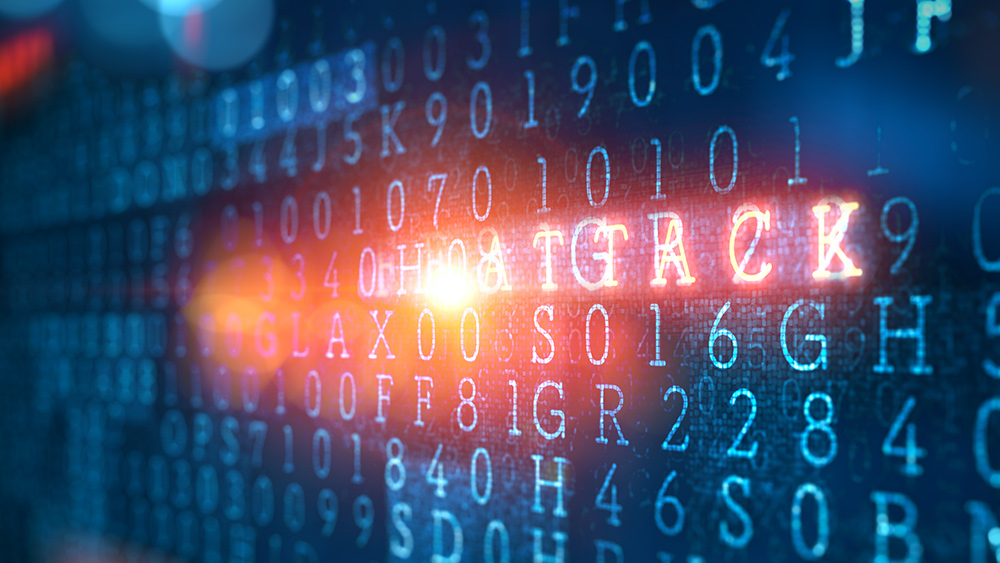Parler says Amazon intentionally let hackers attack data centers
01/23/2021 / By Franz Walker

Parler is accusing Amazon of deliberately leaving a back door open in their data center, leaving the former open to attack from hackers.
In a recent court filing, Parler states that Amazon Web Services (AWS) deliberately left Amazon Route 53, a domain name system (DNS) web service, open after AWS took Parler down. According to Parler, this “conveniently directed hackers to our backup datacenters and caused them to initiate a sizeable DNS attack.”
“AWS essentially illuminated a large neon arrow directing hackers to Parler’s backup datacenters,” the filing reads. It notes that this led to the servers experiencing an “extremely large attack” that was “250 times larger and 12 – 24 times longer” than most distributed denial-of-service (DDoS) attacks.
Parler did note that AWS eventually terminated its Route 53 link, but the damage had already been done.
Attacks on Parler’s servers are apparently “AWS-facilitated”
Parler, the social media platform that touted itself as a “free speech” alternative to Twitter, was taken down AWS last week following its removal from Google Play and the Apple App Store.
On top of having being taken down, however, it seems that Amazon also left Parler’s servers and data open to attack from hackers.
“AWS didn’t just put Parler up a creek without a paddle – it banished it up the Columbia River without a boat and made sure no other boats would be willing to come to the rescue,” Parler said in its filing, describing the subsequent attacks on its servers as “AWS-facilitated.”
In its lawsuit, Parler initially contended that Amazon engaged in monopolistic practices and asked a court to reinstate the website. A later filing from the company then accused Amazon of caring only about whether President Donald Trump would join Parler after his account was banned from Twitter, which also uses AWS. (Related: Parler sues Amazon for terminating hosting services in a discriminatory, monopolistic fashion.)
But Amazon has denied these claims, stating that Parler was only taken off AWS due to Parler’s lack of action to curb the extreme rhetoric expressed by its users.
In its own court filing, Amazon included examples of comments that were posted on Parler and ostensibly not moderated by the social media platform. The examples submitted by Amazon included posts calling to assassinate liberal leaders, activists, members of mainstream media and even professional athletes in the NBA, NFL, NHL and MLB.
Parler back online, but in limited form
While AWS shut down Parler, the site has since come back online, albeit in limited form. Visiting the site currently leads to a message from the company’s chief executive, John Matze.
“Hello world, is this thing on?” says Matze’s message at the top of the page. “We will resolve any challenge before us and plan to welcome all of you back soon.”
Talking to Fox News, Matze stated that he was confident that the platform would be back up by the end of January. This is a significant change from what he told Reuters earlier in the week when he stated that the site may never return.
Based on a report by CNN, Parler’s domain is currently registered with Epik, a DNS provider that has played safe haven to websites like The Daily Stormer in the past. The site is apparently being hosted by DDoS Guard, a Russia-based company that offers enhanced protection from DDoS attacks similar to those that hit Parler.
But getting its servers online is just one problem that Parler needs to address before it can say that it’s fully up and running again. With its app currently banned from both the App Store and Google Play, users will have to find alternative means of installing it on their phones. While this is an option on Google’s Android operating system, it’s something that’s nearly impossible to pull off on iOS, especially with Apple actively removing any sideloading methods that are discovered.
Follow BigTech.news for more on how Amazon and other tech companies are biased against services that provide a haven for conservative voices.
Sources include:
Tagged Under: Amazon, AWS, Big Tech, big tech censorship, Censorship, cyber war, Data, DDoS, Glitch, hack, hackers, Parler, technology
RECENT NEWS & ARTICLES
COPYRIGHT © 2017 COMPUTING NEWS





















